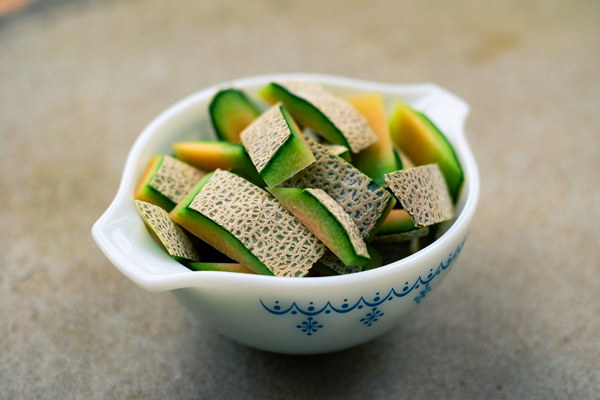Does High Uric Acid Require Dampness Removal Exploring the Link Between Uric Acid and Dampness in Traditional Chinese Medicine
Does High Uric Acid Require Dampness Removal? Exploring the Link Between Uric Acid and Dampness in Traditional Chinese Medicine
In the realm of traditional Chinese medicine (TCM), the concept of dampness is often associated with a variety of health conditions, including those related to the metabolism and the excretory system. One such condition is hyperuricemia, or high uric acid levels, which can lead to gout and other forms of arthritis. The question then arises: does high uric acid require dampness removal? To understand this, we must delve into the principles of TCM and how it views the relationship between uric acid and dampness.
Understanding Uric Acid and Dampness in TCM
In TCM, uric acid is not a term that is explicitly mentioned, as it is a modern medical concept. However, the symptoms associated with high uric acid levels, such as joint pain, swelling, and inflammation, are recognized, and they are often attributed to a condition known as damp-heat or dampness and heat.
Dampness in TCM refers to a pathogenic factor that can lead to a variety of diseases. It is believed to be caused by an excessive accumulation of moisture in the body, which can disrupt the normal flow of Qi (vital energy) and cause stagnation. Dampness can be external, resulting from exposure to damp weather or environments, or internal, stemming from an imbalance within the body.
The Connection Between Uric Acid and Dampness
According to TCM, high uric acid levels can be a result of dampness accumulating in the body, especially when accompanied by symptoms of damp-heat. The dampness may hinder the proper metabolism of uric acid, leading to its accumulation in the bloodstream and ultimately crystallization in the joints.
Here are a few ways in which dampness may contribute to high uric acid levels:
1. Impaired Qi Flow: Dampness can obstruct the flow of Qi, leading to a disruption in the body's metabolic processes. This can affect the excretory system, including the kidneys, which play a crucial role in filtering uric acid from the blood.
2. Heat Generation: When dampness combines with heat, it can generate internal heat, which further exacerbates the condition. This heat can promote inflammation, which is a characteristic of gout and other forms of arthritis associated with high uric acid levels.
3. Obstruction of Channels: Dampness can lead to the obstruction of meridians and channels, which are pathways through which Qi and blood flow. This obstruction can result in pain and swelling in the affected areas, as seen in gout.
Treating High Uric Acid with Dampness Removal
In TCM, the treatment of high uric acid levels often involves a combination of herbal remedies, dietary adjustments, and lifestyle changes aimed at removing dampness and balancing the body's internal environment. Here are some common approaches:
1. Herbal Therapy: Herbs such as Forsythia, Alisma, and Astragalus are often used to drain dampness and relieve heat. These herbs help to improve the flow of Qi and stimulate the excretory system to remove excess uric acid.
2. Dietary Changes: Foods that are considered to be dampening or heating are often avoided. Instead, a diet rich in vegetables, fruits, and lean proteins is recommended. Foods known for their diuretic properties, such as celery and parsley, may also be beneficial.
3. Lifestyle Modifications: Regular exercise, adequate hydration, and stress reduction are all important in managing dampness and improving overall health.

Conclusion
While the relationship between uric acid and dampness in TCM is not a direct one-to-one correlation, the concept of dampness removal can be a valuable component in the treatment of high uric acid levels. By addressing the underlying dampness and balancing the body's internal environment, TCM practitioners aim to alleviate symptoms and improve overall health. However, it is important to note that TCM should be used in conjunction with, not as a replacement for, conventional medical treatment for hyperuricemia. Consulting with both a TCM practitioner and a healthcare professional is recommended for a comprehensive approach to managing high uric acid levels.









